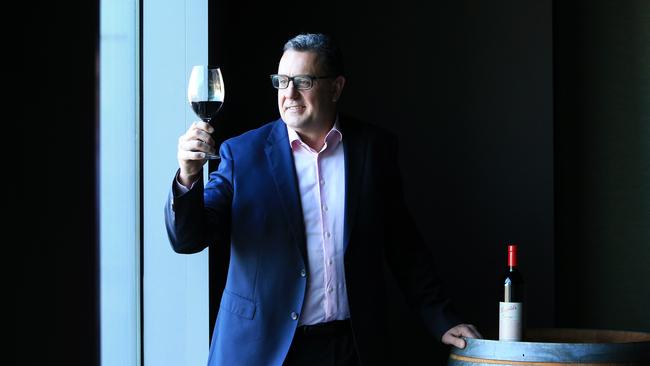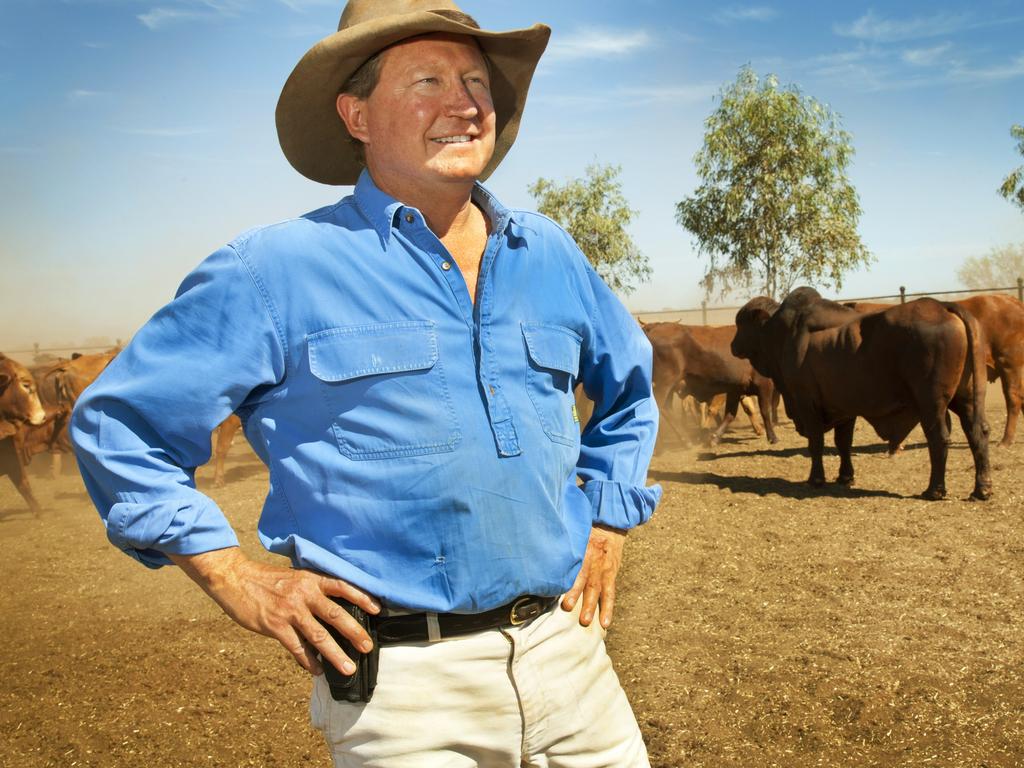
The 60-day time limit before interim measures can be taken expired on Saturday, so the Port Adelaide tragic had to nurse his wounds from the Richmond loss in the AFL, together with doubt over if and when Chinese duties will be imposed.
Ford’s team is working on the formal submissions to Chinese questions, which are due on November 16 pending a final decision any time thereafter.
At the same time, Ford is working on alternate distribution channels. These include a local distribution partner, a local bottler for low-end product that could be shipped across by the barrel, and even a Chinese equity stake in the local business.
Ford is pushing ahead with the separation of the Penfolds brands from the rest of the business, but officially has suspended the proposed end-of-year spin-off pending a resolution of the Chinese investigation.
The good news is that, despite the threat of duties as high as 80 per cent, by all reports Penfolds sales in China are going well as the local economy bounces back from the COVID-19 slowdown.
Ironically enough, the August 18 launch by China of its dumping investigation came on the same day that Ford’s team was launching the new Penfolds range in Shanghai at a gala event.
TWE has shipped extra quantities of wine to Shanghai to hold in its local warehouse to ensure supply is maintained in case of any shipping delays and also pre-emptive duty imposition.
Australian sales are also strong, with Coles chief Steven Cain telling The Australian last week that locked-down consumers were tending to go upmarket in their wine and other purchases.
That is those, of course, who are lucky enough to still have a job.
When Ford fronts next month’s annual meeting he is expected to give a bullish report on first-quarter sales thanks to both Chinese and Australian earnings.
Separately, he is closing in on a sale of his low-end US wine brands to what is expected to be a private-equity buyer.
Brands such as BV Coastal and Berringer Main & Vine make up about six million cases, or 42 per cent, of annual output but only a fraction of the annual earnings of about $220m in 2019 because they are low-end brands.
Ford wants to maximise the top end in the US around brands including Matura and 19 Crimes and believes he can do so without hurting earnings.
But it’s China that is the growth engine, accounting for roughy 17 per cent of the company’s $2.8bn in sales and 35 per cent of earnings. That explains why all effort is going into the future distribution channels in the country.
Delay on dumping
On matters of dumping, mention should be made of the behaviour of the Australian Dumping Commission that last week delayed until February next year a final decision on dumping from China, Taiwan, South Korea and Thailand of small diameter steel pipe and tube.
The case was first launched on complaints from Liberty Steel and BlueScope last October with a preliminary finding delayed until last week, but that was delayed again until next month.
Unlike wine, steel import prices react to the mere threat of a dumping action, so the local industry has won protection for 16 months.
Little wonder the Chinese government gets angry, especially when the Australian regulator doesn’t accept Chinese steel prices as “normal” and uses proxies from other markets in determining the normal price.
Sims’s call to arms
ACCC chief Rod Sims has used his annual report to urge a national debate on the concentration of industry in Australia seeking increased powers and a warning against predatory action by companies against COVID-affected rivals.
“I cannot fail to mention the debate Australia needs to have about how concentrated we want our economy to be and therefore how we approach assessments of the competition effects of mergers,” he said.
It’s a drum he is expected to beat when he speaks at the National Press Club this week, at a time when some retailers argue the growth of online shopping has broken the barriers on market share with physical store space no longer such an issue.
Some might also say it’s a bit rich talking up merger controls when Sims’s team was happy to wave through authorisation applications to allow the highly concentrated Australian industry prepare in the midst of the COVID-19 outbreak. Sims argued health was the number one, two and three priority, but now it’s back to competition.
His speech comes as the ACCC has launched its first major cartel case for a year against NQCranes over alleged market share agreement with MHE Demag, the local unit of the German-based global crane giant.
In a statement on Monday the ACCC said it “alleges that NQCranes entered into a signed agreement with a competitor in the overhead crane market in August 2016. This agreement allegedly included a cartel provision to share the market by not targeting each other’s customers for overhead crane parts and servicing in Brisbane and Newcastle.
“Specifically, it is alleged that NQCranes and its competitor entered into a distributorship agreement, that contained a provision that the companies would not target each other’s existing service customers in Brisbane and Newcastle.”
Demag, the competitor involved, was named in the statement of claim that suggests it was the party that gained immunity by taking the matter to the ACCC.
The case is the first major cartel action since the BlueScope case in July last year.
Sims noted in his annual report that “despite the ACCC’s lack of success in blocking mergers in the Federal Court and the Australian Competition Tribunal, we maintain the importance of taking action to preserve competitive market structures. Without a strong merger regime, there is a risk of higher market concentration as dominant firms acquire competitors to enhance their market power.
“Ultimately, this could lead to price increases and harm to innovation, productivity and inequality.”
Sims said this financial year the ACCC would “pay particular attention to the potential for opportunistic purchases of distressed or failing firms caused by the worsening economic climate to ensure that acquisitions of assets or businesses do not substantially lessen competition.
“Competition must and will survive the COVID-19 pandemic crisis, as it is fundamental for the recovery phase of the crisis. An open, well-functioning economy is essential to the prosperity of all Australians, and such an economy depends completely for its success on robust competition.”
Sims was paid $828,044 last year according to the annual report. The report noted the ACCC failed to meet its targeted 40 in-depth competition assessments, completing only 28.
Partly because of its overall success, the regulator has become a go-to source of political brownie points from federal politicians who have referred industry investigations to the ACCC to respond to consumer concerns.
But the increase in so called national interest investigations has meant lower levels of actual competition enforcement actions.








Just over three months into his reign as Treasury Wine Estates boss, Tim Ford is wondering just whether the Chinese government will impose a temporary duty on his Penfolds exports to China with a decision deadline passing last weekend.